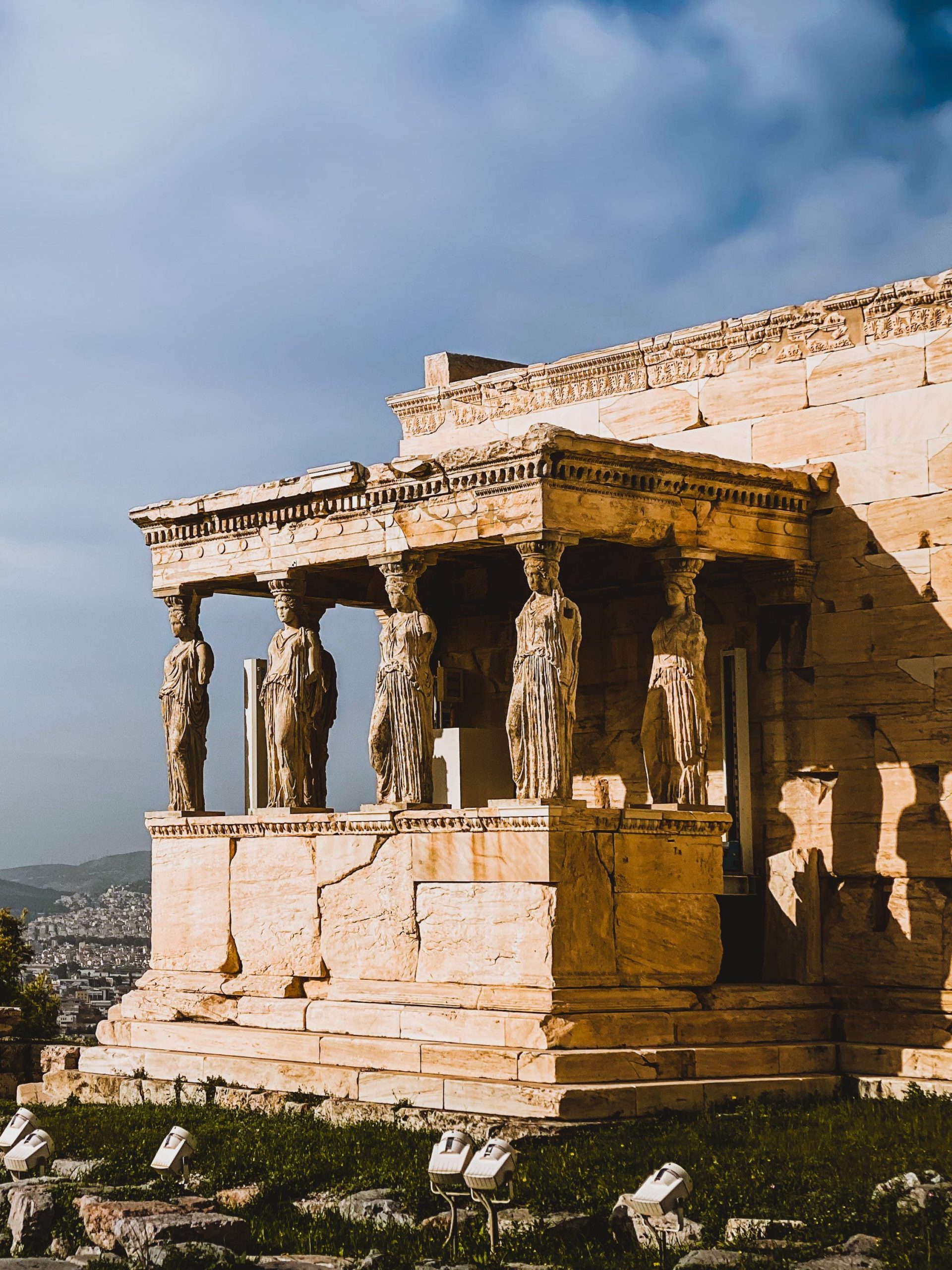The birthplace of democracy, philosophy, medicine and mathematics, Ancient Greece was a culture that had enormous influence. Its legacy infiltrates every aspect of our modern life, down to the language we use to describe it.
Ancient Greece is classed as the period from around 1300BC to 600AD, although the Classical Age, which we all picture in our minds when we think of Greece, was the relatively short period from the 5th-4th centuries BC. Classical Greece saw expansion and influence to the point where Greek culture was exported all over the Mediterranean and even as far as central Asia due to the efforts of leaders like Alexander the Great.
By the 3rd and 2nd centuries BC, however, Greek control was slipping. In 146BC Greece was overwhelmed by the Roman Republic, and became part of the Roman Empire.
Greek Influence on Britain

With an unfamiliar alphabet, pagan religion and distant geographical location, it might be hard to see at first glance how much influence Ancient Greece has played on modern Britain.
But dig a little deeper and it’s clear to see that Greek influences are everywhere in modern western society. In fact, we might just owe Greece the very name of our country!
In around 325BC a Greek explorer named Pytheas voyaged through Europe, and recorded an island populated by “painted people”, (or as the Celts called themselves, the Pretani). In Greek this became Pretanike (Brittanic land) and nesoi Brettaniai (Britannic islands). The name came to be used later by the Romans when they added Britannia to their empire.
Classical Greece has been dubbed the birthplace of modern thought, with advances in the arts, sciences, mathematics and of course social structure and philosophy. Greek gave us words like democracy, geometry, physics, telephone and anything with an -ology (the study of)! If you are anti-something, that’s Greek. If you are called Alexander, Catherine or Philip, then you have a Greek name. If you’ve ever been to the theatre to watch a comedy or tragedy, listened to an orchestra or sung in a chorus, then you have Ancient Greece to thank for it.
Famous ancient Greek People
Greece produced some of the most famous and influential people in history. You can’t talk about war and conquest without Alexander the Great who ruled an Empire that stretched from Greece to north west India. Where would mathematics be without Archimedes, Euclid or Pythagoras? How would we view life without Plato, Socrates, and Aristotle? Modern doctors still take a version of the Hippocratic oath, named after Hippocrates, the “father of western medicine”. Perhaps more than any other ancient culture, the names of Ancient Greeks scientists, philosophers and leaders still survive 3000 years after their deaths.
Greek gods and Mythology
Even today the names and stories of Greek Gods and heroes are still popular. We have all seen, heard or read about characters like Zeus, Hercules, Perseus, Pegasus and the Minotaur. Retold again and again, added to and reinvented from the classic films like Clash of the Titans to modern interpretations like 300, Percy Jackson, and Disney’s Hercules, Greek stories and myths are still alive and well, and can act as a great hook to get children interested in the period.



Leave a Reply